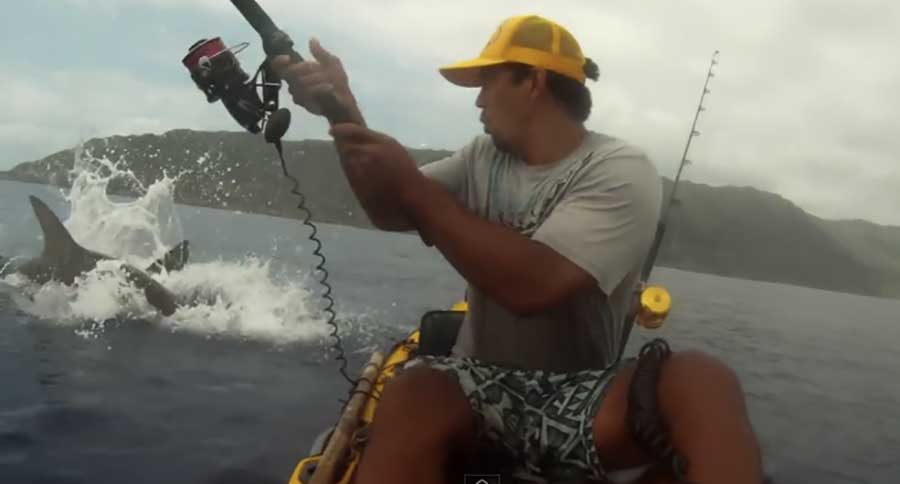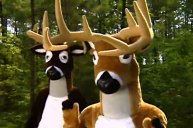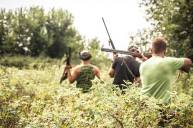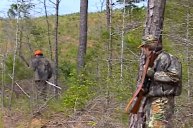Jeff Foxworthy and I talk about his passion for conservation, how to talk to anti-hunters, and one of his memorable hunting stories.
It's 9:59 am on a Friday morning, and I'm sitting in the back office of Wide Open Spaces waiting for a call from Jeff Foxworthy.
At 10:00 am, on the dot, the phone rings. I'll admit, I'm a little nervous. I'm about to talk to one of the world's greatest entertainers.
"Hi, this is Jeff Foxworthy, and I'm calling for Matt Alpert," he says in his congenial Georgia drawl.
In an instant, I'm put at ease. Foxworthy is about as friendly and down-to-earth a guy as they come. Within a few seconds he has me cracking up.
Immediately, a couple things become clear: One, Foxworthy is incredibly passionate about fishing and hunting - especially bowhunting, and two, conservation is at the top of his priorities.
Showcasing these passions is important to him, which is why he started his own brand, Foxworthy Outdoors.
The company began in 2011 as both a brand and retailer of innovative hunting products. Since then, it's expanded to include two hunting web series, Inside & Out and The Incomplete Deer Hunter.
The company also takes wounded warriors and children with illnesses hunting on Foxworthy's 3,000-acre Georgia farm, a place that he lovingly calls a "deer mecca."
"Growing up we didn't have the kind of money that I thought I'd be able to afford a place..." he says, as if he's drifting back to old memories on the other end of the phone. "I've been really blessed in my career."
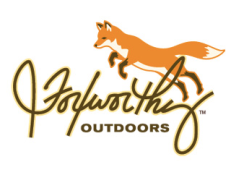
Click here to learn more about Foxworthy Outdoors.
I get the sense that his Georgia farm is his crown jewel. It's a southern sportsman's paradise, with scores of whitetail deer, a lake filled with 8 to 9 pound bass and an abundance of wild turkeys, doves and quail.
Foxworthy purchased the property from the Callaways - a storied Georgia dynasty that once laid claim to most of the hunting properties in Georgia.
When he was buying the farm, one of the Callaways showed him a stone bowl found in a creek on the property. The Smithsonian Institute dated the bowl back more than 5,000 years.
It's clear that this artifact has had a profound impact on him.
"I came back and I told my kids, I said 'You have to understand something: this bowl is over 5,000 years old, which means 3,000 years before Jesus was born somebody was living here. So we don't own it, we're just taking care of it for a really short time."
He's fired up.
"This is our responsibility that somebody else 5,000 years down the road is still enjoying it.'"
"That's our job as outdoorsmen: to make sure that it's not just for us, but the people that are coming behind us."
Foxworthy has taken that responsibility to heart and put it into practice.
A couple years ago, he dedicated nearly half of his farm to conservation easement, ensuring that it can never be developed.
I ask him about the other ways he's passing on traditions of hunting and fishing to the next generation.
He responds in part with a rhetorical question that he hopes all outdoorsmen ask themselves.
"If I'm out west on a mountain or down on my farm, what do I need to do to make sure this is still here 50 years from now, when my grandkids want to do this or my great grandkids want to do this?"
It's a genuine response, and it shows just how much he loves the outdoor sports and traditions he grew up with.
On Anti-hunters
While he surrounds himself with people who share the same outlook, Foxworthy has also spent years working in a town where folks tend to have less than favorable perceptions of hunting.
"If you could ever get those fringe groups to just look inside themselves and be non emotional."
He tells me about an experience in Los Angeles when a former colleague, who also worked for PETA (People for the Ethical Treatment of Animals), chided him for being a hunter.
He describes how he handled the situation in the audio below.
https://www.wideopenspaces.com/wp-content/uploads/sites/3/2014/06/Taking-on-Anti-Hunters3.m4a
I ask him about the changing attitudes towards hunting in mainstream culture.
"I think the good thing about the popularity of hunting and fishing now is that the people that participate in it have become the conservation stewards of it...I think we go through different stages as outdoors people and as conservationists."
The stage he's in now seems to be dedicated to preserving and protecting the lands and sportsman traditions he grew up with.
Before we end our conversation, Foxworthy tells me a story from a younger stage in his life - a period he's used as inspiration to write his trademark "You might be a redneck" jokes.
Foxworthy tells the story in the audio below:
https://www.wideopenspaces.com/wp-content/uploads/sites/3/2014/06/Foxworthys-Dove-Story2.m4a
I encourage you to visit FoxworthyOutdoors.com to learn more about the company.
NEXT: EXCLUSIVE INTERVIEW: Troy Landry of the HIt TV Show Swamp People
